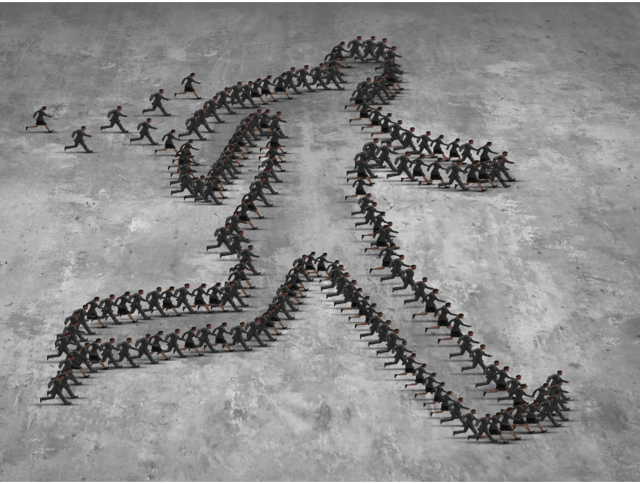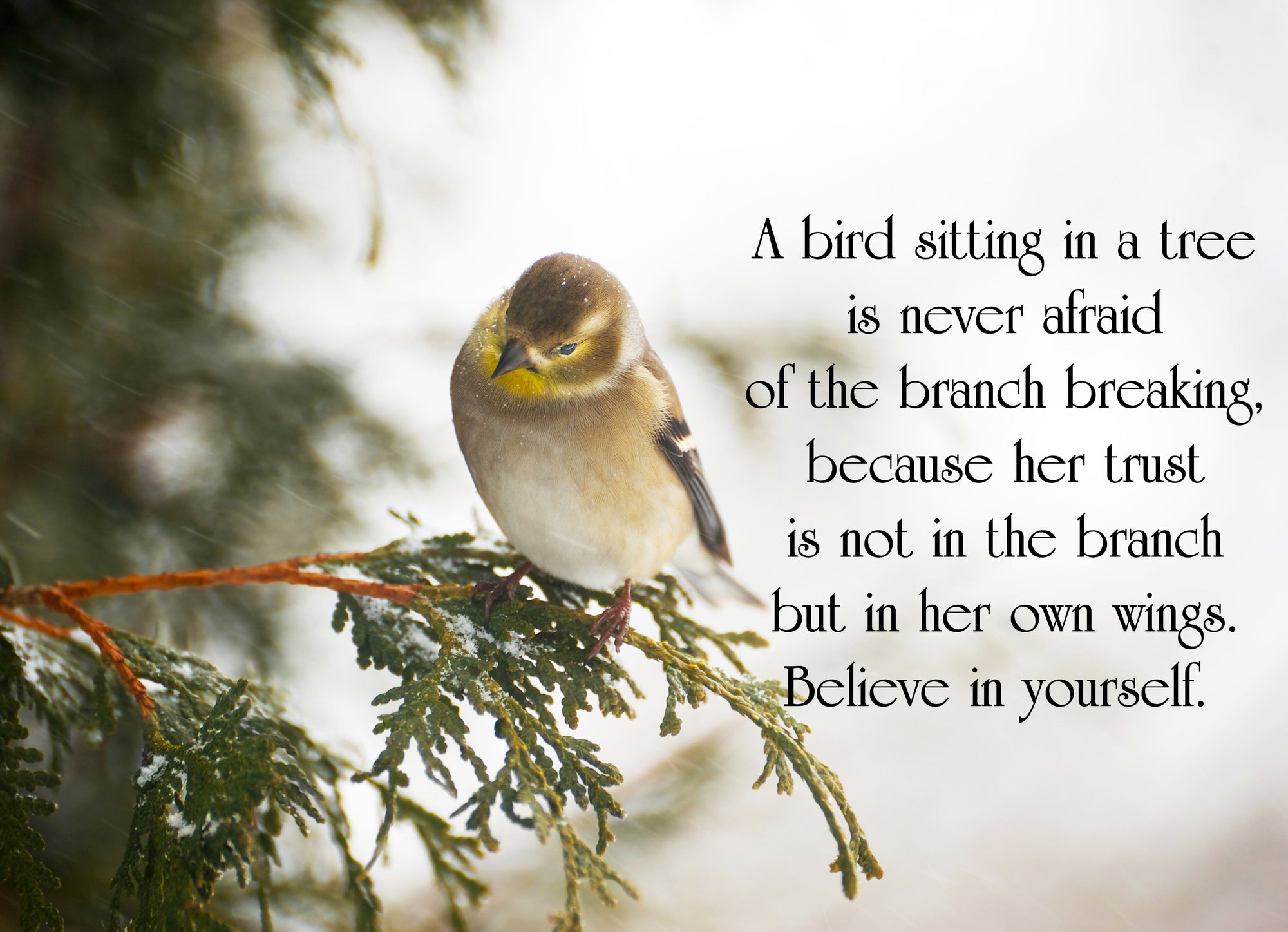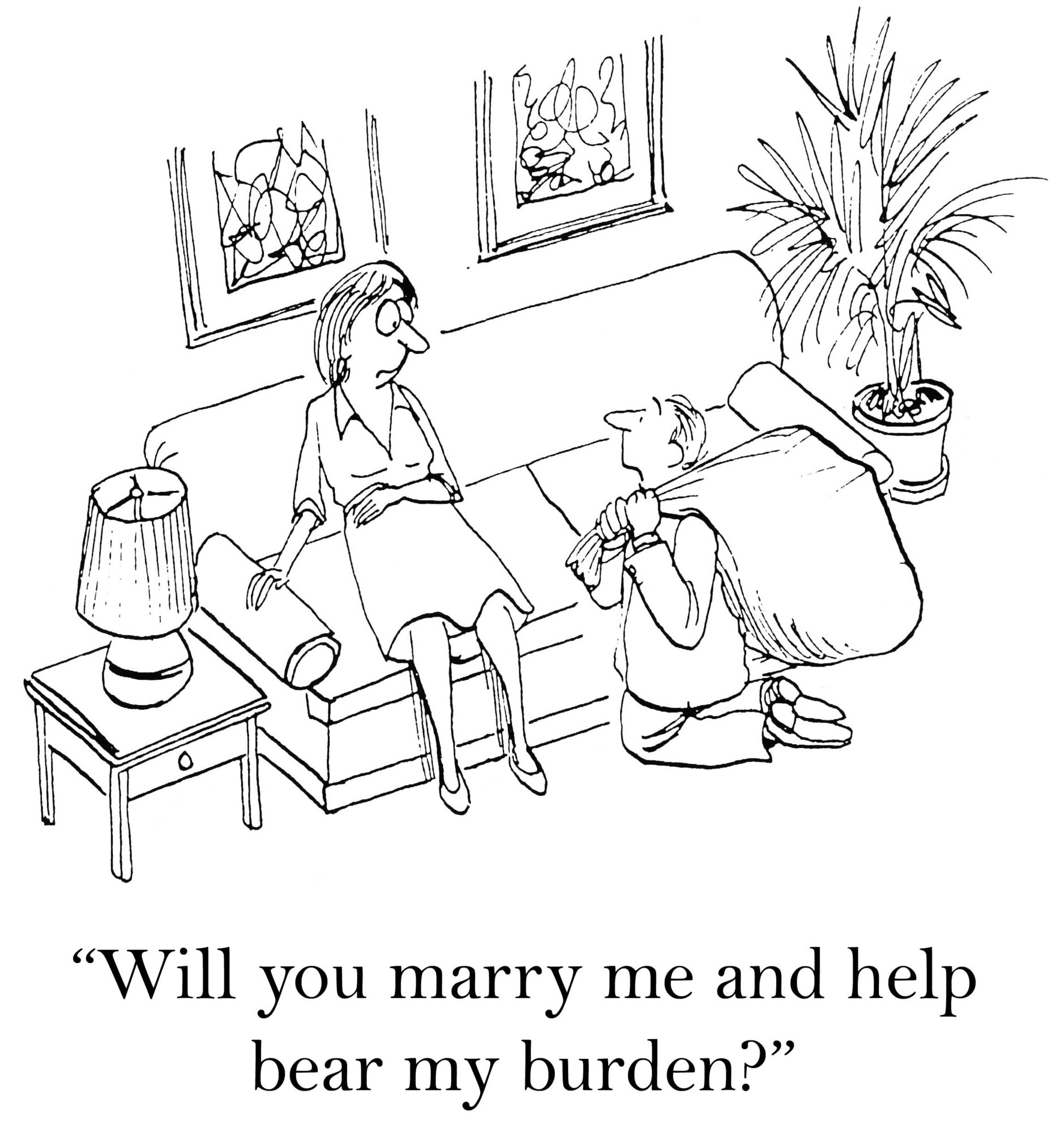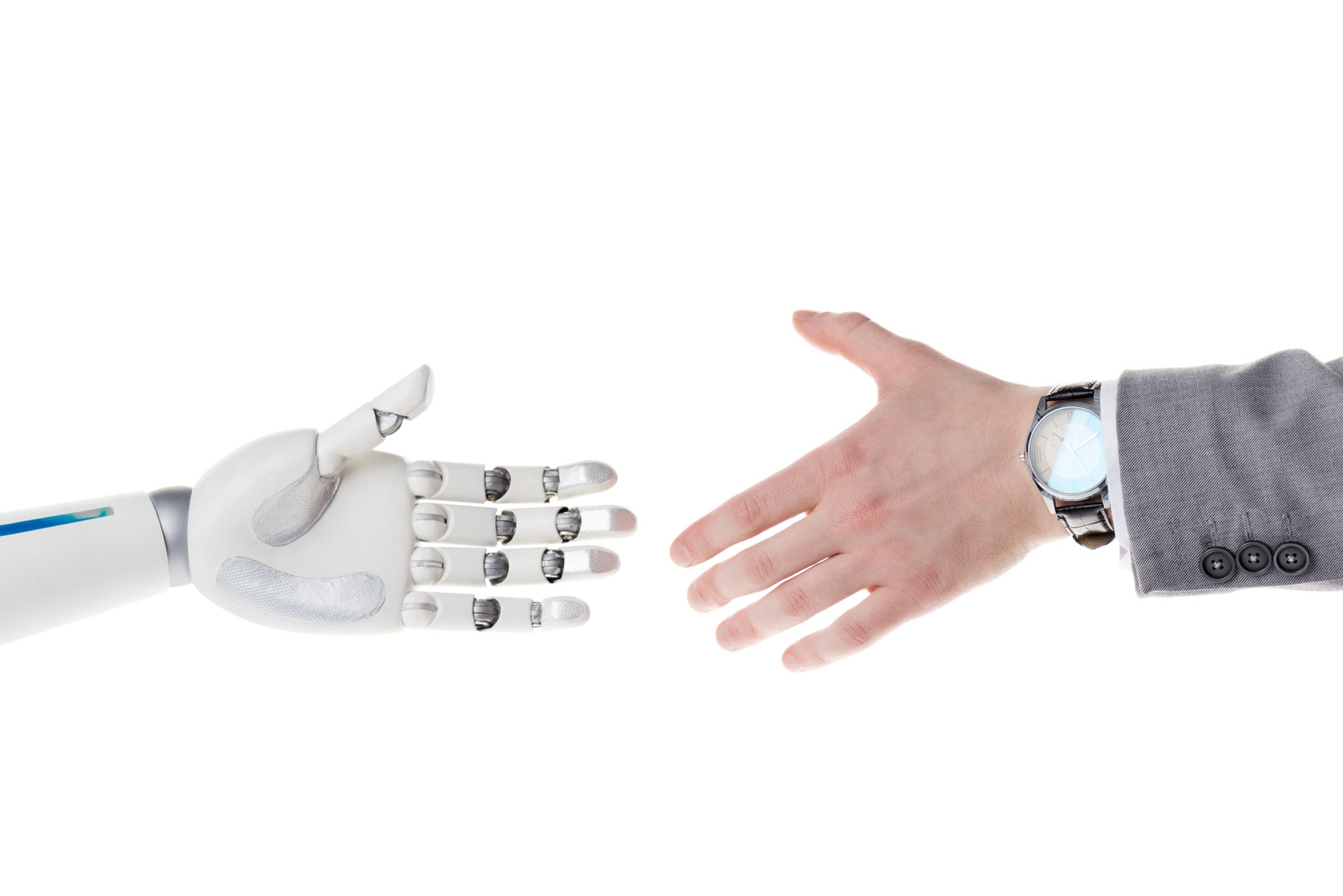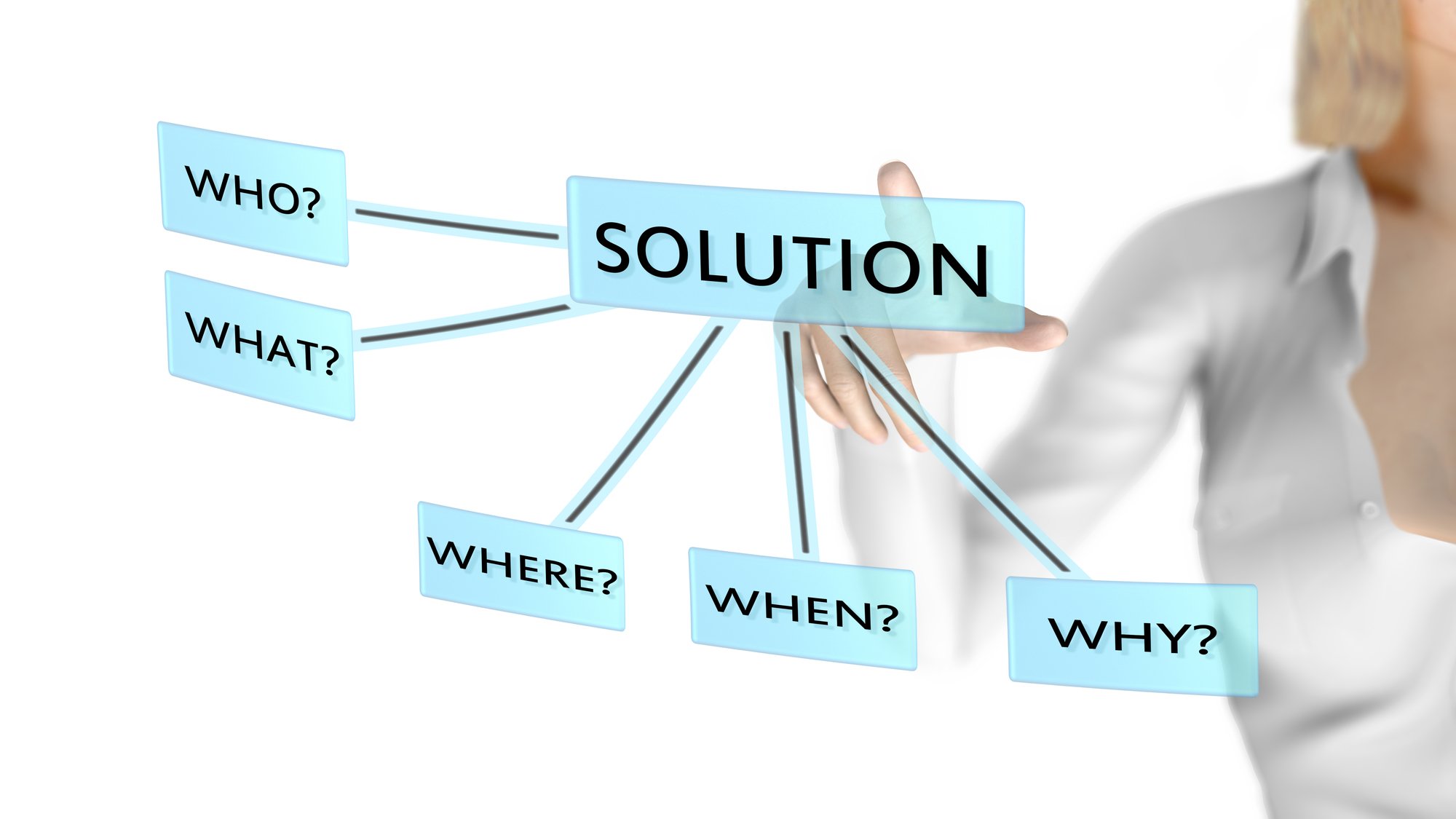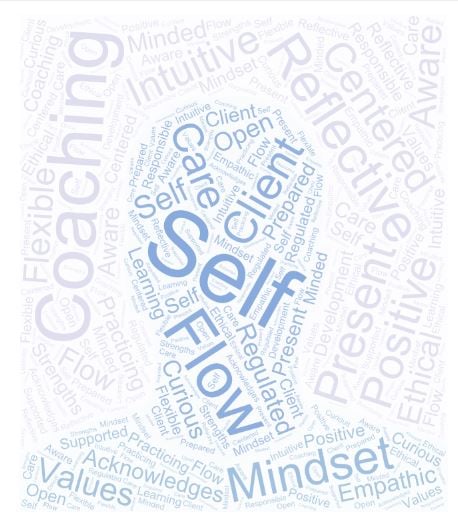 The ICF recently added the first new Core Coaching Competency in over two decades.
The ICF recently added the first new Core Coaching Competency in over two decades.
It's called: Maintains a Coaching Mindset.
This post will clear up confusion about what a Coaching Mindset is, why it matters, and how you can develop and maintain it. Because once you understand this, a doorway opens that makes masterful coaching possible for you.
The first thing to know is that this competency is demonstrated both outside coaching sessions as well as during coaching. In other words coaching, with its expansive positivity, curiosity, presence, and acknowledgement isn't something you just do for an hour or two and then revert to thinking and acting small. Thinking like a coach is a 24/7 commitment.
Maintains a Coaching Mindset helps counter the misconception that coaching is merely a performative skill set.
The ICF definition of Maintains a Coaching Mindset is:
Develops and maintains a mindset that is open, curious, flexible and client-centered.
Coaches need to show up this way during coaching sessions because it helps raise the client's receptivity and resourcefulness, which are key to the client's success. Great coaches do more than help clients solve their problems. They help them grow into people who stop having those problems. Plus, coaches need to show up this way outside coaching sessions in order to maintain trust and respect with clients.
Because, almost anyone can learn the communication techniques of coaching. But until they learn to think like a coach, that will limit their clients' outcomes and growth, and it will also limit the coaches' careers, because clients won't want to work with them. Why not?
Potential clients naturally mistrust coaches who are closed-minded, incurious, rigid, or self-centered; even if just a little bit.
So how do you develop and maintain a coaching mindset? Here are several approaches:
- Develop your self-awareness. Because you cannot be client-centered if you are unaware of where you end and your client begins. It's surprising how often people are unaware of this. If you are a helpaholic or compulsive advice giver, you need work here. Get to know your own Strengths and Values, as well as your Needs, biases, unhealed wounds, assumptions, and habits. It's a lot to be aware of and it will always be a work in progress, but healthy personal growth can carry a coach a long way. How can you achieve this?
- Hire a life coach to help you expand your personal development. Most student coaches have buddy coaches who support each other to learn coaching skills. And coaches who apply for ICF certification, hire ICF Mentor Coaches but, like buddy coaches, these mentor coaches mainly help their clients develop their coaching skills. You need to work with a coach who will help you develop YOU.
- Work with a therapist on any unhealed wounds. These can be blind spots, so ask people who know you well what yours might be.
- Develop self-regulation. When your Needs, boundaries, and self-care are well met, you can show up positively and your negative emotions are much less likely to get in the way. This can change your entire outlook as well as what you think is possible for your clients. A coach or therapist can give you customized support with this, but there are several other approaches that can work well:
- Know your boundaries and how to communicate them. Just as good fences make good neighbors, good boundaries are the foundation of good relationships. What are you not okay with? What are your deal breakers? Good boundaries are clear but also flexible and boundary conversations help us navigate varied cultural perspectives, a necessary skill in the 21st Century. Boundaries are basic rules of engagement that help you and others be your best. When you know how to communicate boundaries, you put people at ease and relationships progress more smoothly. For example: Your written agreement with your clients is a formalized set of boundaries. In fact, most difficult issues that could come up in coaching relationships can be forestalled by what is included in that agreement. You need less formal boundaries in your personal relationships but don't try to live without them. By the way, sometimes the person you need to set boundaries with the most is yourself. You can learn to set boundaries by taking trainings or even reading books on boundaries. Here's a good one.
- Know your Needs and get them met. We all have them. Most of us go through life hoping ours will be met and then suffering needlessly because Needs aren't met by chance. They are our own responsibility. If we don't actively work to get them met, it's unlikely that they will be. Abraham Maslow said meeting Needs is like taking vitamins; they keep us healthy. Unhealthy coaches can't reliably maintain a coaching mindset. Read about Needs here. Take this course to learn how to help yourself and your clients get Needs met.
- Take your self-care seriously. Working crazy hours, eating a terrible diet, never exercising, juggling stress, sleeping too little, and impoverished relationships can all block your coaching mindset and you may not even notice. But others will. Don't take that chance. What's one thing you know you need to start doing, or stop doing, to take care of you? Are you willing to commit to that change? Great, when can you start?
- Know your boundaries and how to communicate them. Just as good fences make good neighbors, good boundaries are the foundation of good relationships. What are you not okay with? What are your deal breakers? Good boundaries are clear but also flexible and boundary conversations help us navigate varied cultural perspectives, a necessary skill in the 21st Century. Boundaries are basic rules of engagement that help you and others be your best. When you know how to communicate boundaries, you put people at ease and relationships progress more smoothly. For example: Your written agreement with your clients is a formalized set of boundaries. In fact, most difficult issues that could come up in coaching relationships can be forestalled by what is included in that agreement. You need less formal boundaries in your personal relationships but don't try to live without them. By the way, sometimes the person you need to set boundaries with the most is yourself. You can learn to set boundaries by taking trainings or even reading books on boundaries. Here's a good one.
- Develop your intuition, empathy, creativity, and positivity. Western culture has long prized reason, logic, and rational thought, the so-called left-brain thinking patterns. Those qualities have taken our culture a long way. But your brain has two hemispheres. You can't live your best life without both. Coaching excels because it unabashedly includes other ways of thinking that are associated with the right brain. Integrate your brain so you can move back and forth seamlessly. Why does this matter? It helps provide the wisdom, flexibility, positivity and creativity that are prized in master-level coaching. And it helps you develop a coaching mindset. This leads almost effortlessly to more profound client outcomes. They are so worth it. Here's how:
- Engage in contemplative practices and use one or more to prepare for coaching sessions. These will help change your brain by temporarily lowering stress. Over time, you'll develop greater perspective, more maturity, and more wisdom. Because we are all prone to stress but cannot coach well when when we are in the fight, flight, or freeze response, we need these practices to prepare for coaching sessions. Traditional practices, such as mindfulness, sitting meditation, walking meditation, prayer, chanting, and ritual can all change your brain state briefly, so they are ideal for preparing before coaching sessions, but when practiced daily for months and years, they change those relaxed states into enduring traits by integrating the brain. If you're more secular, uncomfortable with a spiritual approach, or technology is your thing, there are powerful research-based breath exercises and verified practices based on smartphone apps and other devices. HeartMath is effective for many. Over time, these practices can help you strengthen your True Self and be less controlled by your ego. That can help you be happier. Your True Self (sometimes called Personal Greatness, Higher Self, Wise Self, etc.) is essentially your coaching mindset.
- Live a Values-driven life. Your Values are what really matter to you. If you are spending all your time on other matters, you cannot be your True Self, nor can you live your best life, nor may you coach masterfully. When your mindset is focused on what matters, you are thinking like a coach and can coach clients to greatness.
- Keep Learning. The ICF and most other certifiers require that you continue your coaching education throughout your career. When you choose a coach training, look not for the acquisition of mere technical information, but for the kind of adaptive challenges that will assist you to coach at increasingly higher levels and to show up with the mindset of your True Self, Personal Greatness, or Higher Self. In other words, training that will challenge you to show up with the mindset of a coach. It's worth it.
The Certified Positive Psychology Coach Program and Certified Neuroscience Coach Program can help you learn beginning-to-advanced coaching skills and develop a coaching mindset. Or read more about becoming a coach in the free Become a Positive Psychology Coach eBook.
Learn more about becoming a coach here:



